The old wise Greek father-of-all things, Aristotle, said that to persuade someone of something, it takes three things: logic, emotion, and character. He called them logos, pathos, and ethos, but that’s Greek to us.
And when these three rhetorical elements are employed, the result is typically a convincing argument that wins the hearts and minds of an audience. He intended it to help his fellow Greeks argue their way out of accusations in court (not realizing we would eventually hire lawyers to do that for us), but it’s become a method by which people convince others to take action on all sorts of things – whether it’s buying a car, casting a vote, or joining a cause.
The cause to mitigate climate change has been championed globally, most recently by figures like Swedish climate activist, founder of the Youth Strike for Climate movement, and Nobel peace prize nominee, Greta Thunberg. Locally, it’s been taken up by an unlikely pairing: a poet and a scientist, who convince us to take action in their new film Resilience: Transforming a Community.
Combined they embody Aristotle’s three pillars of argumentation. John Anderson, the marine scientist, appeals to logic through his years of research. Liz Zetlin, the poet, injects emotion by taking the data and forming a narrative.
And the credibility of the two of them is exactly what Aristotle meant by ethos. They bring their reputations to the cause, and the result is a powerful message supported by the real truth: we need to make big changes ASAP.
“If we act as individuals, it will be too little; if we wait for government, it will be too late; but if we come together as a community, there’s a chance we can really make some change,” Zetlin cites as their mantra for the film, one that’s centred on the local community of Grey Bruce.
Local figures appear throughout the film to help tell Zetlin and Anderson tell their story. Musician Matt Epp offers his heartfelt take on the issue, while entrepreneurs like Charlee Roy and Jim Ansell explain their philosophy, and Marilyn Struthers, local activist, admits she’s been a little paralyzed about how to take action lately.
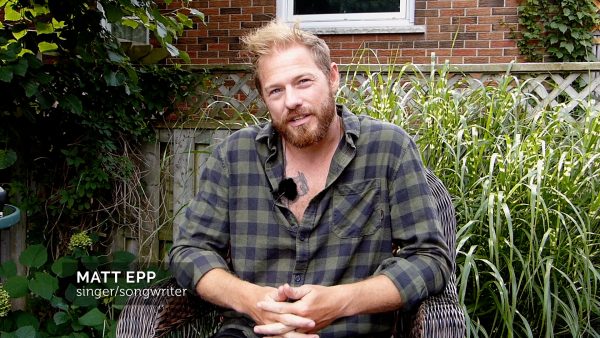
If anyone reading this feels paralyzed to act as well, Zetlin and Anderson want you to know you’re part of the majority.
Anderson cites that 60% of Canadians understand the climate is changing, that humans are the cause, and that we have to do something about it, but are paralyzed. “It is overwhelming because we have to fundamentally transform our society,” he says.
And the way to do that, this film professes, is through a bottom-up approach that begins with families and communities because that’s where change is going to be seen. “It’s family and community focused because that’s what we care about,” Zetlin says. “We want our families to be okay, and it’s not okay to say ‘it’s too late.’”
Anderson outlines the two-pronged approach that every community needs to adopt: preparation and mitigation. We need to prepare for the changes that are already going to happen, but mitigate the potential damage. Some argue it will take a mass rebellion of capitalism to combat climate change, but Zetlin and Anderson propose a shift in community awareness.
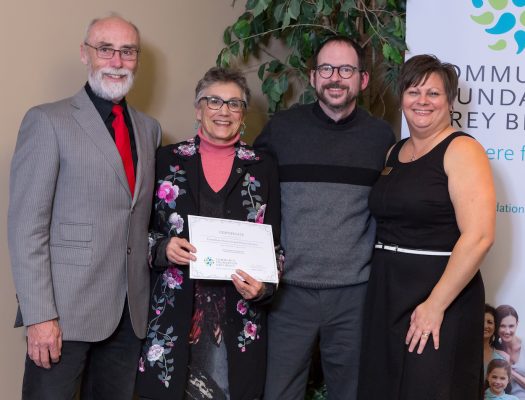
They want to reach people in their teens, twenties, and early thirties because they feel that demographic has the opportunity to make real change. They’re not in denial that the Titanic is sinking, and are not as likely to just go and have a drink at the bar while it descends into the murky depths, as Zetlin figuratively puts it.
The sinking of the Titanic is a common metaphor for this issue, but John uses the boat analogy more directly when he says that to change a boat’s trajectory there is always a latency. And that’s what we’re seeing right now.
Anderson has given countless talks on scientific trends. He’s shown countless audiences the figures, charts, graphs, and tables. He’s laid out the scientific case in all its horrific detail. And he used to think that was enough. Until his wife and daughter convinced him he needed to tell a story instead, one with hope. He needed to appeal to people’s emotions.
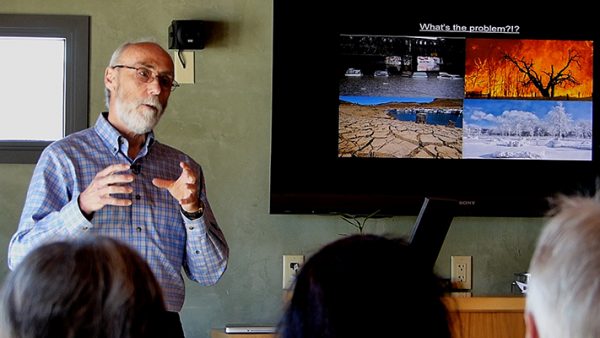
That’s what made Zetlin a perfect partner in this. As an accomplished poet, and former poet laureate of Owen Sound, she understands the power of stories to motivate the community. “People don’t change their mind because of facts, they change their mind because of values,” she says.
Zetlin wants to use Anderson’s research to tell a story, one about real people who are being affected right now. “We have to understand this is affecting real people right now: fishermen, Indigenous communities, farmers….we’re all in this together.”
Part of her enthusiasm resides in her insistence that there is still time — the story can have a positive ending. But she knows there is no story to tell without the logos, as Aristotle called it. “We’re storytelling creatures… but we need the science,” she says.
Note: I’m not going to go into the data here because this is not an article about climate change; this is an article about a film about climate change. I do recommend watching Anderson’s original talk to get all the info, though.
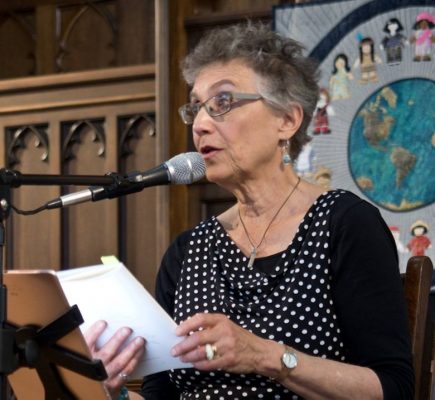
In turn, I ask Anderson if there’s room for emotion in science – “Absolutely,” he says. “We’ve got to personalize this. As you talk about it, you learn about it. And the more you learn, you realize it touches everything we do.”
So we’ve got to build resilience, he says.
The future of our children is the biggest emotional appeal in the story. Kids appear constantly in the film; from toddlers to pre-teens, to high schoolers. John’s daughter plays a prominent role, a marine scientist herself; Matt Epp and Charlee Roy both reference their children as a driving force, and Tom Rand who just had a child at the age of 50 knows it’s a story they will be telling towards the end of this century.
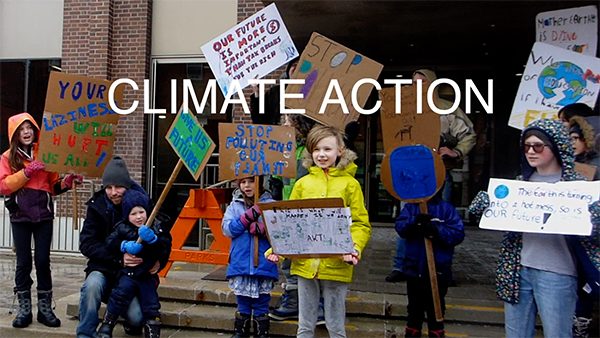
This film is a labour of love for the two of them, an initiative to show the younger generation that the older generation is doing something. Neither is getting paid for this venture. Hell, the whole project is coming in under $10 000. “This is our best shot; two people on a very low budget. I’m hoping that some of the appeal is that it is an amateur film,” Anderson says.
“I want people to get emotional,” Zetlin adds. “We hope this film is going to light a fire.”
“There are two options: do nothing or fight,” John closes with poignantly.
These two are certainly not doing nothing. The film is an hour long testament to their fight. It may not change the world, but it doesn’t have to. It just has to change Grey Bruce.
The film premiers at The Roxy Theatre in Owen Sound on May 8. It is pay by donation. To follow up from the film’s call to action, the Grey Bruce Sustainability Network will host a get-together on Thursday, May 16th at the Harmony Centre at 7 pm to plan climate actions. Everyone is welcome.
Written by Jesse Wilkinson
Photos provided by Liz Zetlin



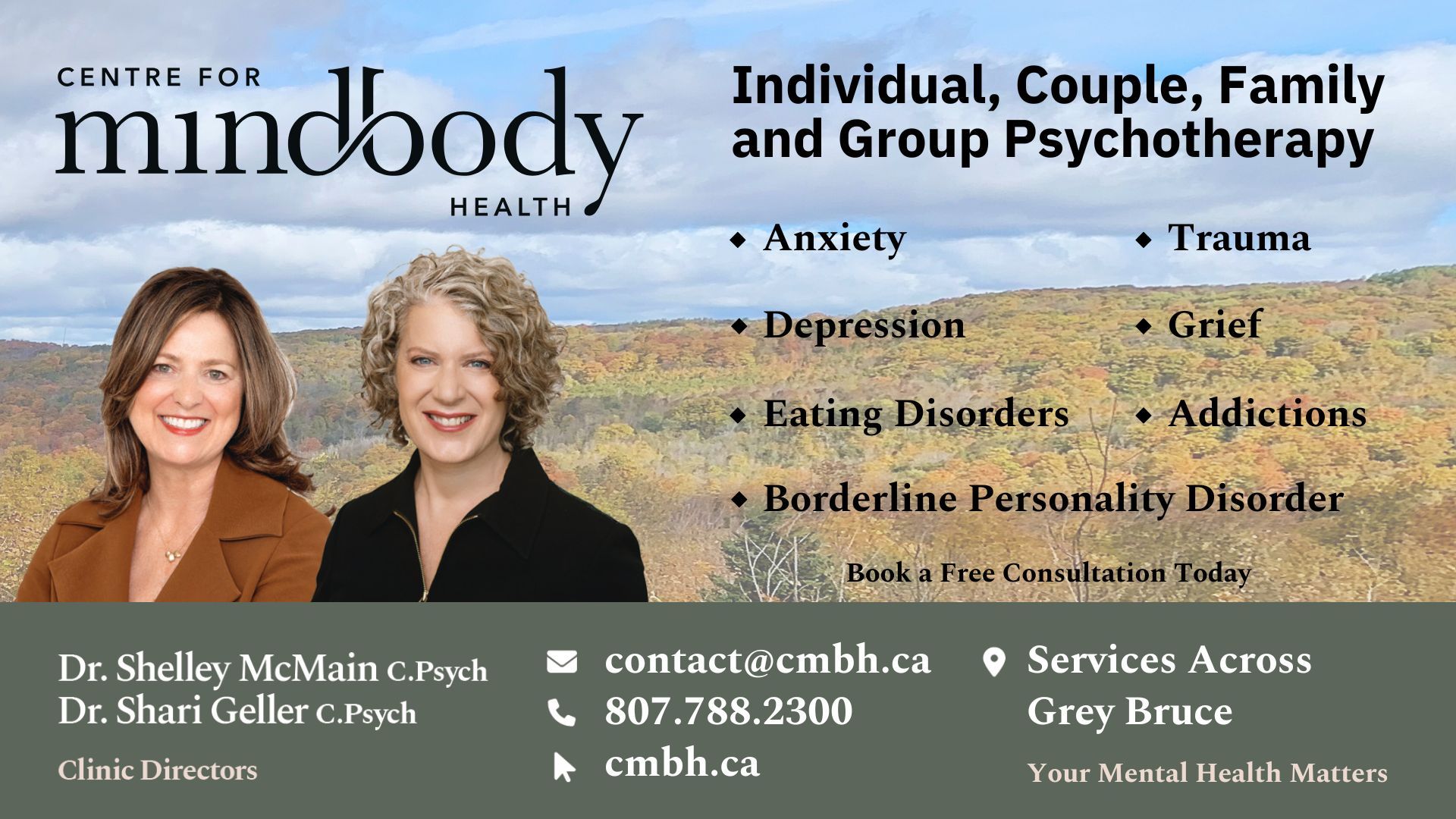

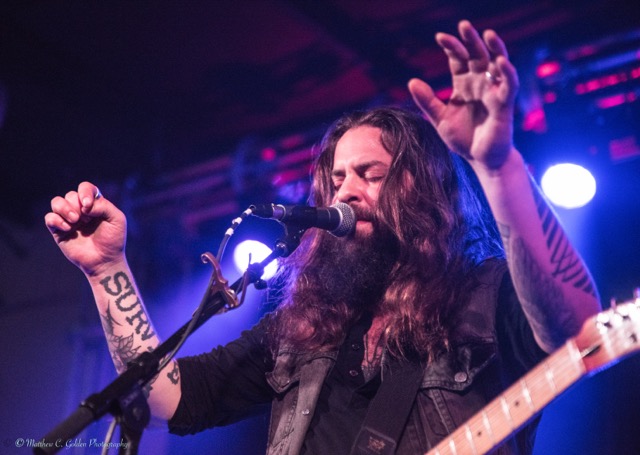
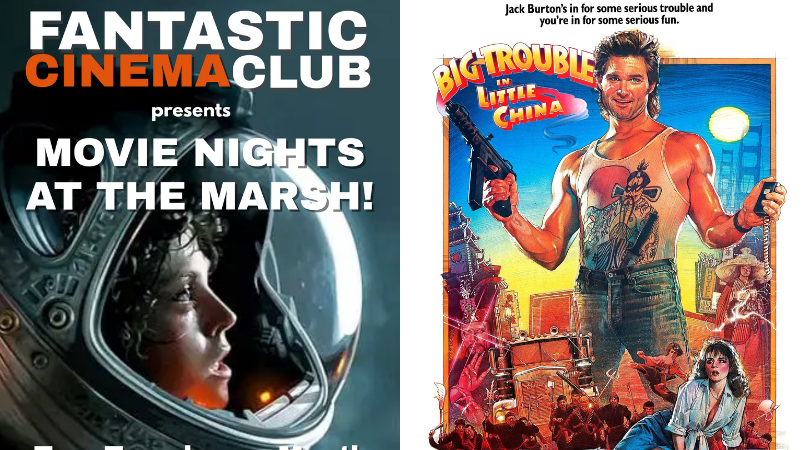

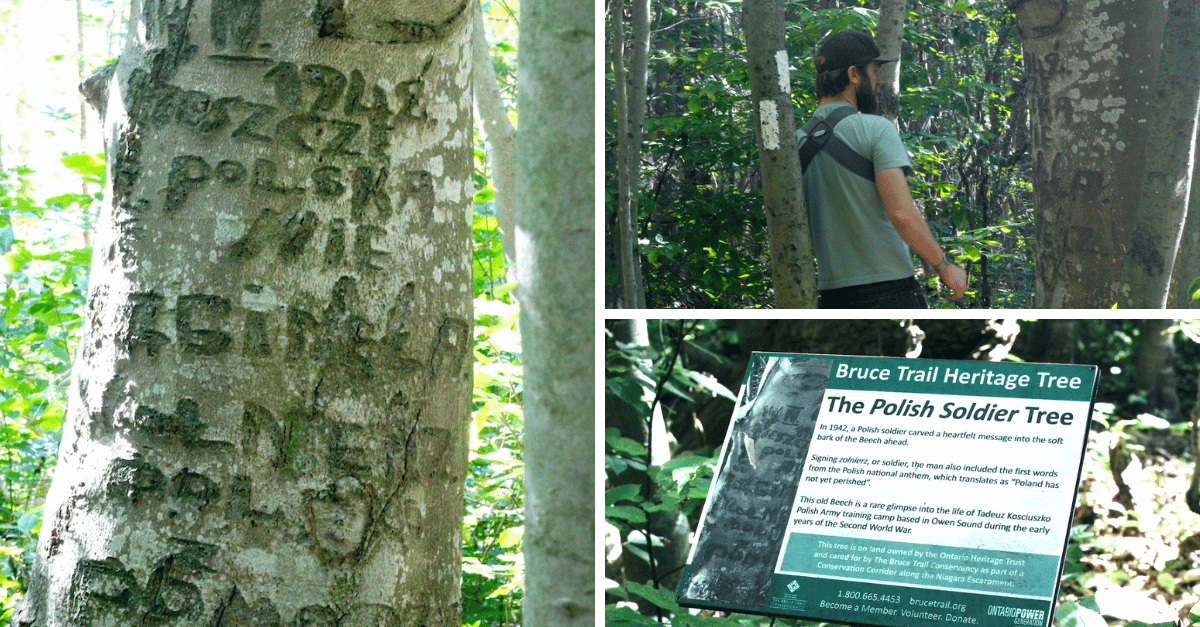
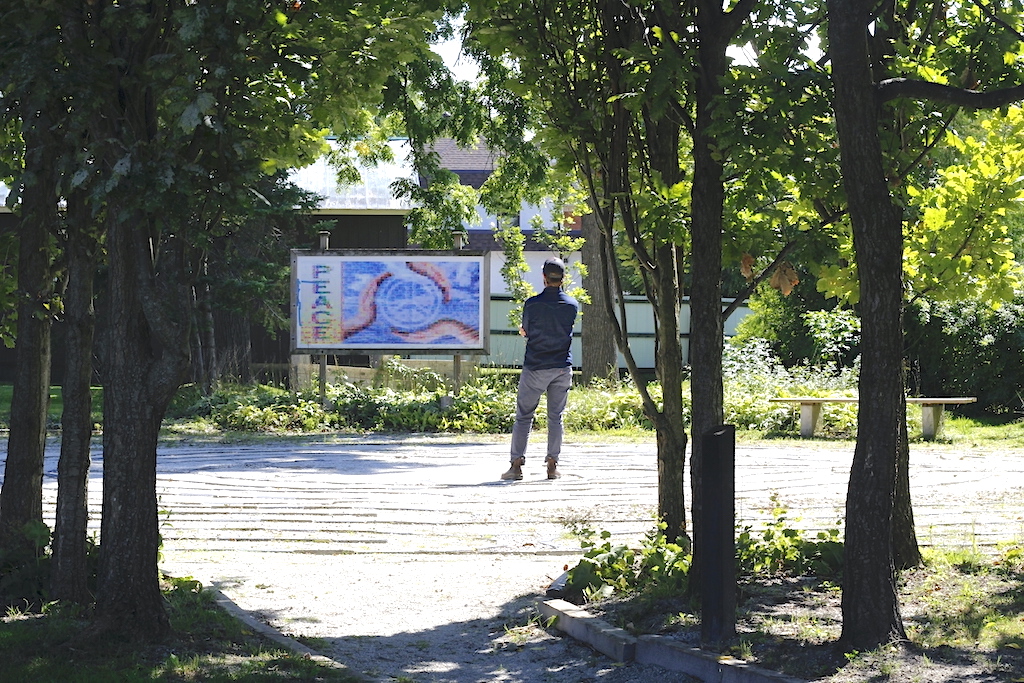
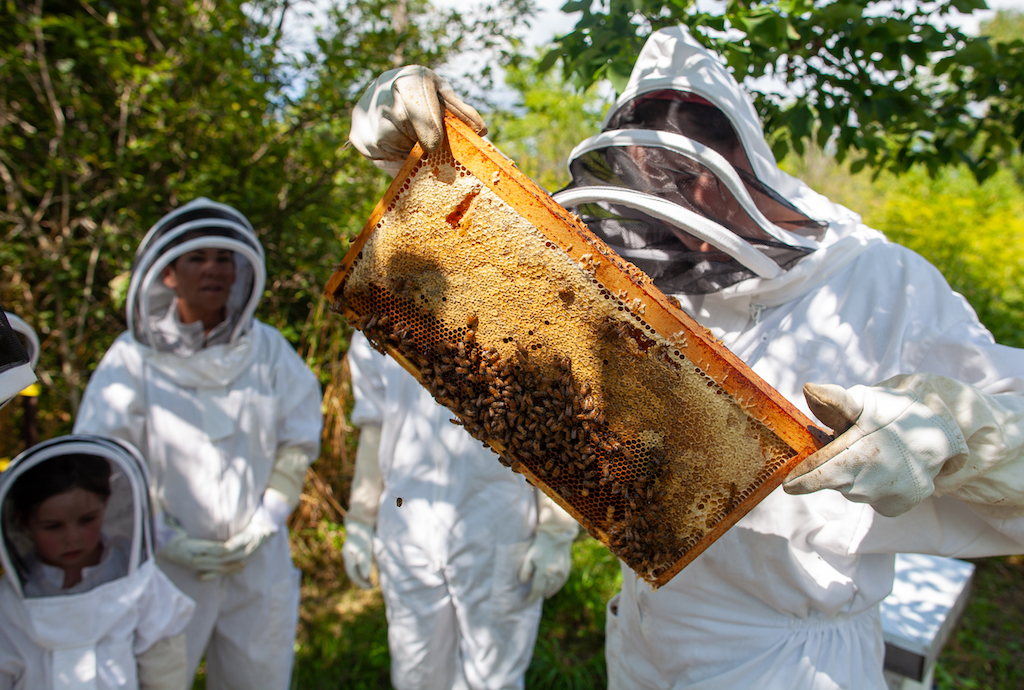
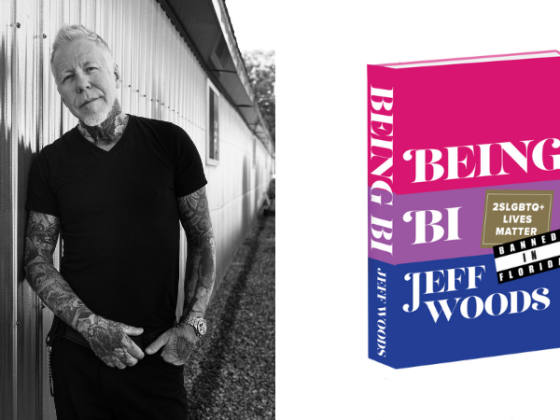
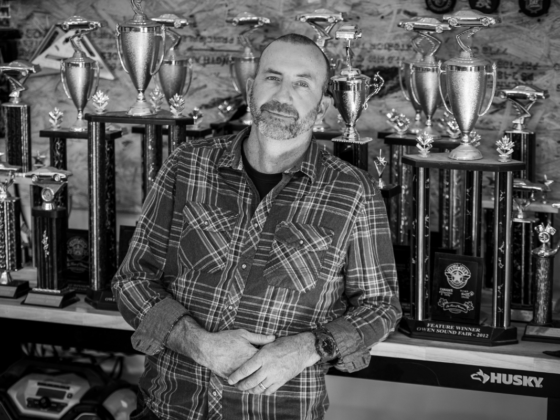

1 comment